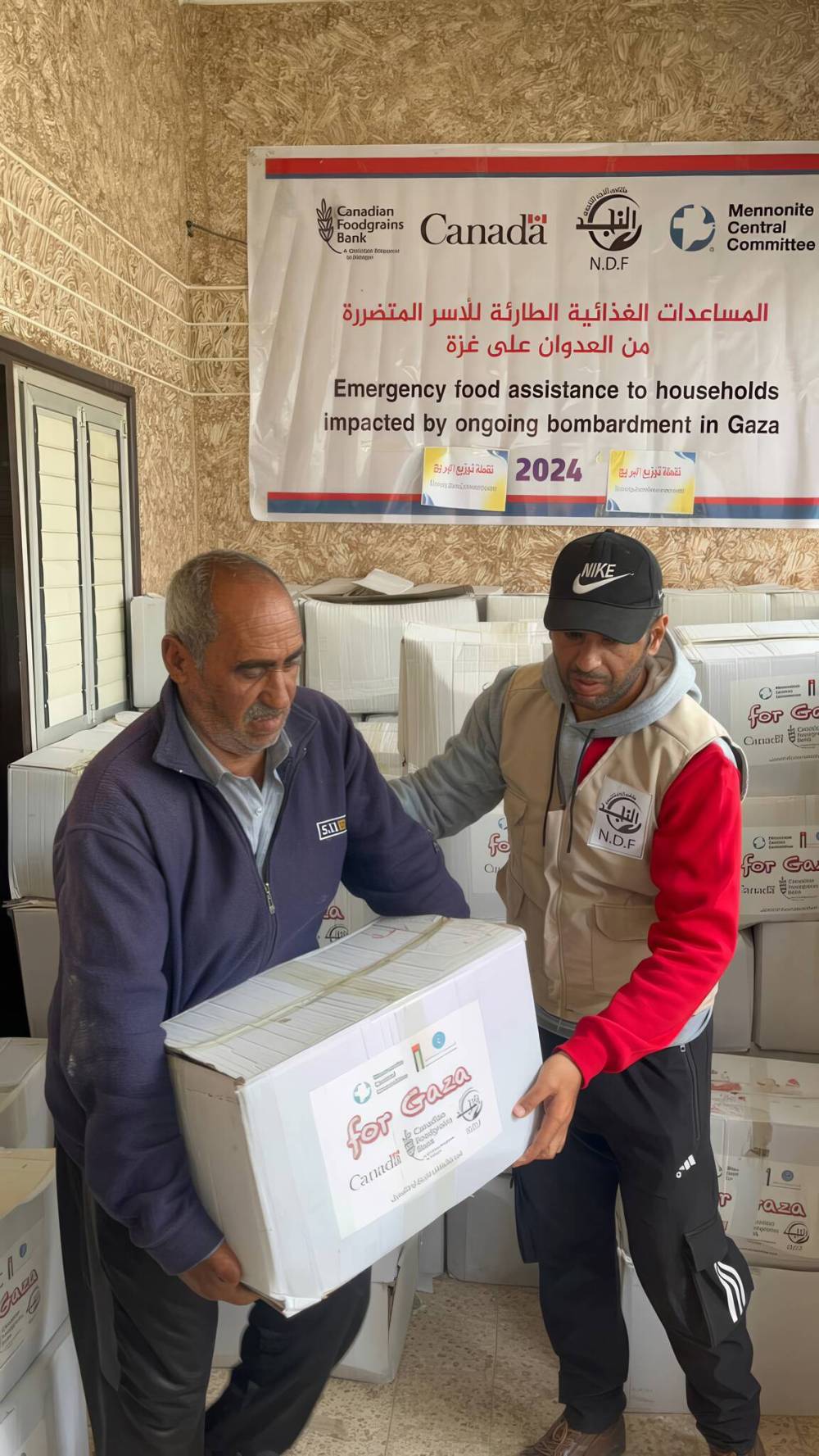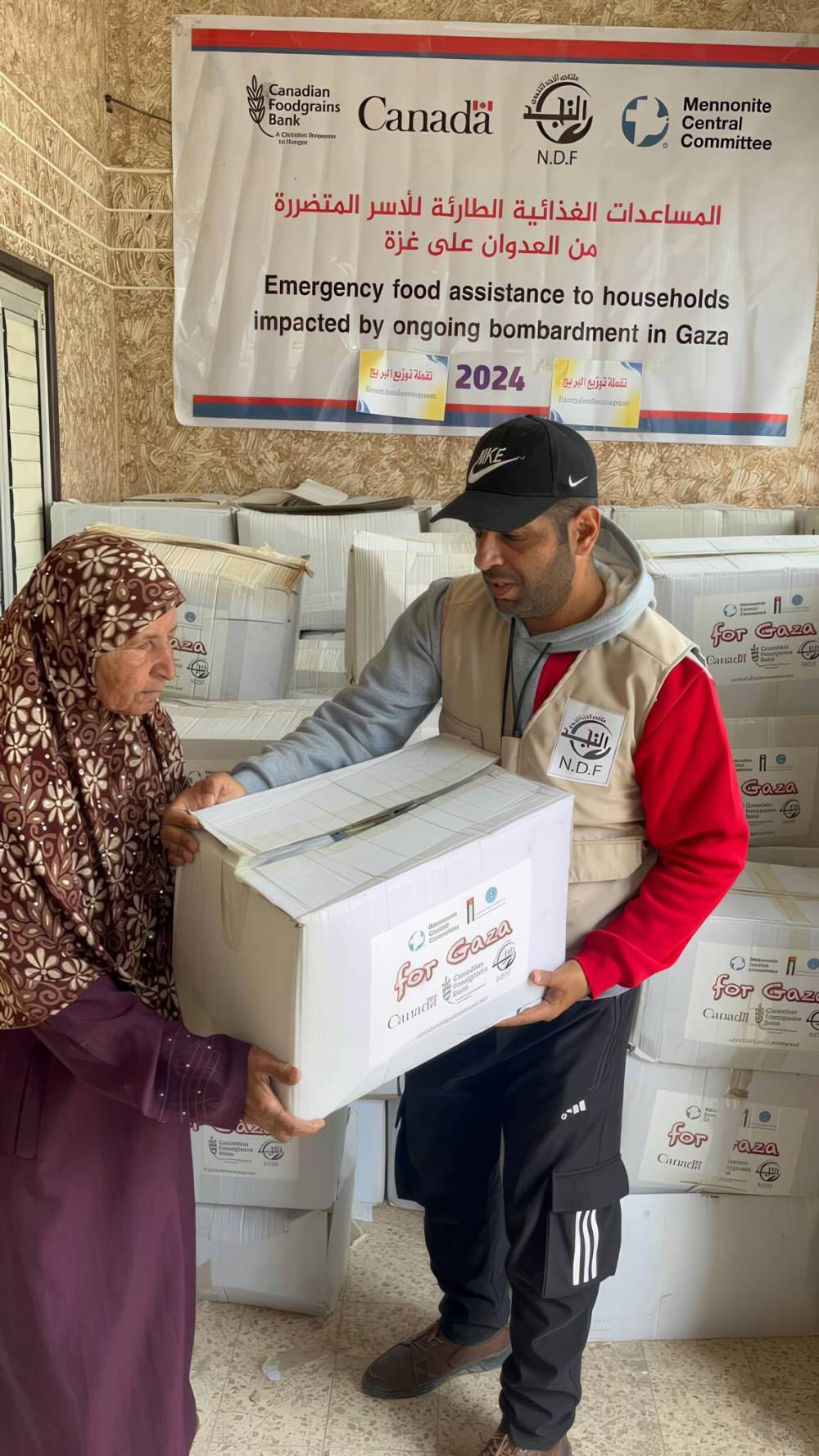What would you do if your children were starving and there was nothing you could do to help them?
That’s the question Andy Harrington, executive director of the Winnipeg-based Canadian Foodgrains Bank asks, referring to the humanitarian crisis in Gaza.
“People in Gaza are in dire straits,” he said, noting nearly the entire population, including many children, are at risk of famine.
Half the population of 2.2 million people in Gaza are at Phase 5 (catastrophe) on the Integrated Food Security Phase Classification scale for food insecurity, an internationally recognized way of measuring hunger, Harrington said, noting that more 850,000 Gazans are at Phase 4 (emergency), Harrington said.
At Phase 5, there is an extreme lack of food leading to starvation and death, while people in Phase 4 are suffering from acute malnutrition, he said.

“This is unprecedented. We’ve never seen anything like this before in a defined geographical area,” he said, adding 31 per cent of children under the age of two in northern Gaza are experiencing acute malnutrition.
“Everyone in Gaza is experiencing crisis. The food system has collapsed. It’s a catastrophe.”
In response, the Foodgrains Bank and its 15 church-related member organizations are calling on the Canadian government to press for an immediate ceasefire so aid can get into Gaza.
“The conflict has to end,” Harrington said. “We are on the edge of horror.”
At the same time as calling for an end to the fighting, the organization sent two shipments of food this year to Gaza through its members Mennonite Central Committee Canada and Development and Peace — Caritas Canada, the relief and development arm of the Canadian Roman Catholic churches.
In March, MCC provided emergency food parcels to 3,822 people living in tent camps between Gaza City and Rafah. In late May, approximately 19,200 people in the northern part received food through Development and Peace — Caritas Canada.
The aid consisted of items such as rice, sugar, lentils, tomato paste, canned vegetables, sunflower oil, beans, canned fish, chickpeas, spaghetti, tea, salt and chocolate spread.
The aid was distributed in an orderly and professional way by partners in Gaza, Harrington said. “It wasn’t dumped off of trucks.”
The organization has a followup shipment planned through MCC, but it is being held up by border closings, fighting and other restrictions.
“Aid is stacking up at the border or stuck in warehouses,” he said.
Before the conflict, Harrington said about 500 trucks a day were needed to supply food and other essentials for people in Gaza. From May 6 to May 29, however, fewer than 1,500 trucks got in. Trucks can wait for weeks to get through one of the two current open border crossings, he said.

The Foodgrains Bank and its members have the ability to send more aid to those who need it, if getting aid into Gaza “was made a lot easier,” he said, adding that an end to the fighting and the opening of borders would be the best solution to the hunger crisis.
Bruce Guenther is MCC Canada’s disaster response director. MCC has 2,000 boxes of food waiting in a warehouse in Jordan to be delivered to Gaza, in partnership with the Foodgrains Bank, he said.
“We are now waiting for a truck to load the food for shipment,” Guenther said. “There is a large backlog. We expect the wait could take up to four weeks.”
The organization is also waiting to send a shipment of material resources, including comforters and relief kits, to Gaza.
“Again, border restrictions are delaying this urgent support to families in dire need,” he said.
More information on donating to the Foodgrains Bank for Gaza is available at foodgrainsbank.ca.
faith@freepress.mb.ca
The Free Press is committed to covering faith in Manitoba. If you appreciate that coverage, help us do more! Your contribution of $10, $25 or more will allow us to deepen our reporting about faith in the province. Thanks! BECOME A FAITH JOURNALISM SUPPORTER

John Longhurst
Faith reporter
John Longhurst has been writing for Winnipeg’s faith pages since 2003. He also writes for Religion News Service in the U.S., and blogs about the media, marketing and communications at Making the News.
Our newsroom depends on a growing audience of readers to power our journalism. If you are not a paid reader, please consider becoming a subscriber.
Our newsroom depends on its audience of readers to power our journalism. Thank you for your support.